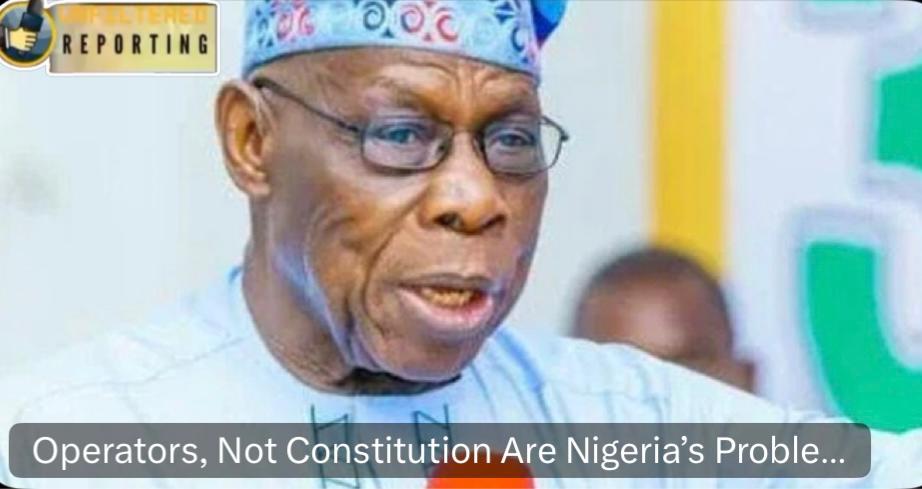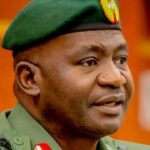Operators, Not Constitution Are Nigeria’s Problem,.Insists Obasanjo

Former President Olusegun Obasanjo has declared that Nigeria's core challenges stem not from its constitution but from the individuals responsible for operating it. Speaking through a letter addressed to former Commonwealth Secretary-General, Chief Emeka Anyaoku, at the National Summit on the Future of Nigeria’s Constitutional Democracy in Abuja, Obasanjo stressed that even the best-designed constitution cannot deliver results under poor leadership.
The letter, which was read aloud at the summit, emphasized that the country’s woes are rooted in the actions of those entrusted with power rather than the legal frameworks guiding governance. According to Obasanjo, over the past 15 years, corruption, selfishness, and impunity have worsened under those operating Nigeria’s democracy, making the constitutional structure less effective. “There is nothing basically wrong with the Nigerian Constitution. The problem lies with the operators,” Obasanjo stated. “No matter what you do to the Nigerian Constitution, if the operators—those in charge of applying and implementing it—remain unchanged and continue in the same manner, the welfare and well-being of Nigerians will continue to be sacrificed.” Obasanjo argued that amending the constitution without addressing the leadership deficit would be futile. He urged Nigerians to focus more on electing leaders with integrity, accountability, and moral character, warning that constitutional reforms alone cannot fix deep-seated governance failures. His position comes amid increasing calls for the review or replacement of the 1999 Constitution, which many critics say fails to reflect true federalism and inclusiveness. However, Obasanjo’s view shifts the focus toward the ethical standards of public officeholders. Also speaking at the summit, Chief Emeka Anyaoku reinforced the need for a credible, people-driven constitutional order. He said while structure is important, it cannot stand alone without responsible leadership. The summit attracted prominent stakeholders, including civil society groups, academics, and political figures, all discussing the future of Nigeria’s democracy. Obasanjo’s remarks have added fresh momentum to the national debate on governance reform, placing responsibility squarely on the shoulders of political actors rather than legal documents.







